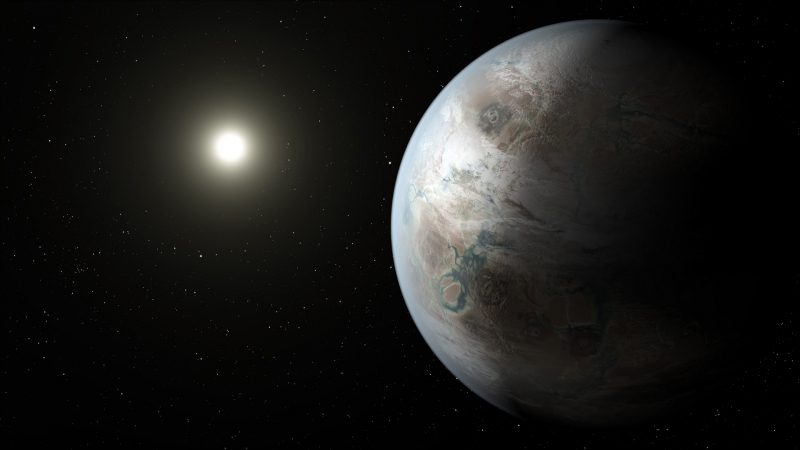Gabe Carey
Posts: 51 +0

Thanks to its Kepler mission, NASA revealed yesterday that it has discovered the first planet comparable in size to Earth within the habitable zone, the area surrounding a star in which liquid bodies of water could reside on an orbiting planet. This is in addition to the 11 other planets considered candidates in an effort to discover a second Earth.
"On the 20th anniversary year of the discovery that proved other suns host planets, the Kepler exoplanet explorer has discovered a planet and star which most closely resemble the Earth and our Sun," added NASA administrator John Grunsfeld. "This exciting result brings us one step closer to finding an Earth 2.0."
Dubbed Kepler-452b, this newly unraveled feat is the smallest planet yet to be identified in the habitable zone, orbiting a G2-type star similar to Earth's sun. This discovery brings the number of confirmed planets to a total of 1,030.
In comparison to Earth, Kepler-452b is 60 percent larger in its diameter, thereby scientifically classifying it as a "super-Earth-size planet". And, although its mass and composition remain unclear, research indicates that a planet of Kepler-452b's magnitude is more than likely going to be cloaked with a rocky surface terrain.
Despite occupying more space, the Kepler-452b presents a 5 percent longer 385-day orbit than Earth. It's also positioned 5 percent farther from its star than Earth from its sun. Better yet, the planet is recorded to be 6 billion years old, making it 1.5 billion years older than our sun. Moreover, it has the same temperature as Earth, is 20 percent brighter, and suggests a diameter 10 percent larger than ours.
If you were to visit Kepler-452b, you would experience gravity twice that of Earth and while it's not clear whether or not life inhabits the planet, data analyst Jon Jenkins asserts that "It's awe-inspiring to consider that this planet has spent 6 billion years in the habitable zone of its star; longer than Earth. That's substantial opportunity for life to arise, should all the necessary ingredients and conditions for life exist on this planet."
Furthermore, researchers at NASA consider Kepler-452b to be an "older, bigger cousin" to Earth, potentially giving scientists the opportunity to further comprehend the ever-changing environments on Earth.
Located 1,400 light-years away from Earth, Kepler-452b is just one in many discoveries made by the Kepler team in recent years. From research conducted between May 2009 and May 2013, the team raised the number of new exoplanet candidates by 521. Additionally, the number of total candidate planets has increased to 4,696, though these candidates now require further examination to confirm that they are, in fact, actual planets.
Of the new candidates discovered, twelve of these planets both possess diameters one to two times the size of Earth's and orbit within the habitable zone of their star. Nine of these planet candidates orbit stars comparable to the sun.
All of these findings will be reported on in the Astrophysical Journal, derived from publicly accessible data on the NASA Exoplanet Archive. Presently, scientists are compiling the final catalog to be based on the original four-year Kepler mission data set. Research will be concluding using "sophisticated software that is increasingly sensitive to the tiny telltale signatures of Earth-size planets".
https://www.techspot.com/news/61502-nasa-discovers-first-ever-earth-sized-planet.html